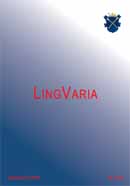Historycznie o podstawach słowotwórczych polskich rzeczowników
A historical look at Polish substantive word-formation
Author(s): Krystyna KleszczowaSubject(s): Language and Literature Studies
Published by: KSIĘGARNIA AKADEMICKA Sp. z o.o.
Summary/Abstract: The author tries to prove that in the historical Polish language nouns tend toward substantive derivations (deverbative and adjectival derivations being in decline). The main reason why substantive derivations are on the rise are contacts with other languages, mostly non-Slavic. We have been borrowing mostly nouns. One example is strengthening of the paradigmatic type ending in a consonant in the nominative (filozof, filolog, chemik), masculine – into -a (lingwista, banita, logopeda). Substantive derivations greatly strengthened prefixoids bio-, auto-, porno-, -holizm, etc. Reasons for the spread of substantive derivations were also already present within the word-formation system. A certain weakness may be seen in substantive-derived adjectives. It has happened that a derivational chain lost an adjectival link, with motivation shifting onto the noun, cf. jedwabnik - jedwabny (robak) [silkworm], today from jedwab [silk]. The effect of declining deverbative derivation also stems from the strength in early ages of written Polish (14th−16th centuries) since it was a time of much change in verbs after aspect appeared.
Journal: LingVaria
- Issue Year: 2010
- Issue No: 10
- Page Range: 59-67
- Page Count: 9
- Language: Polish

